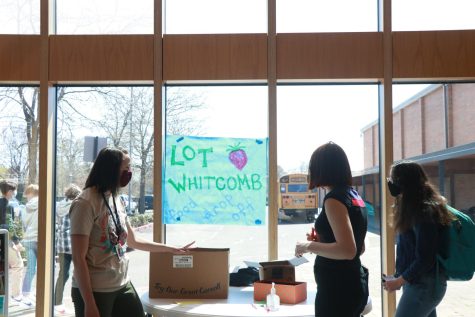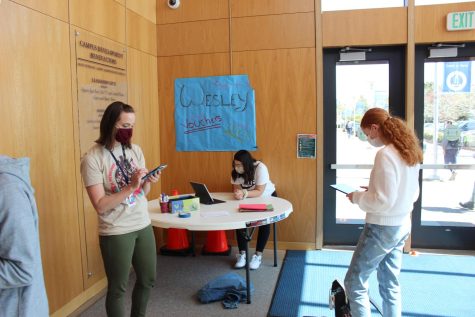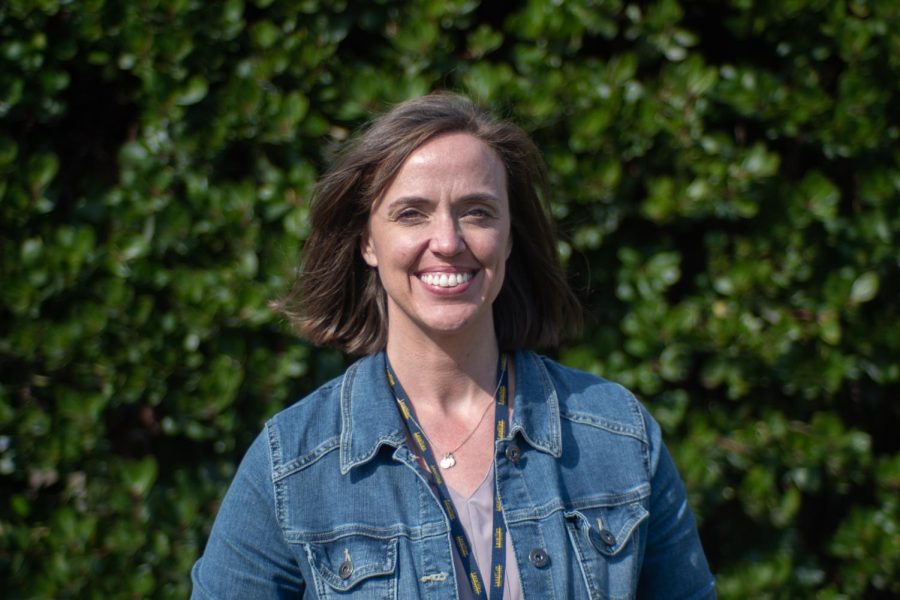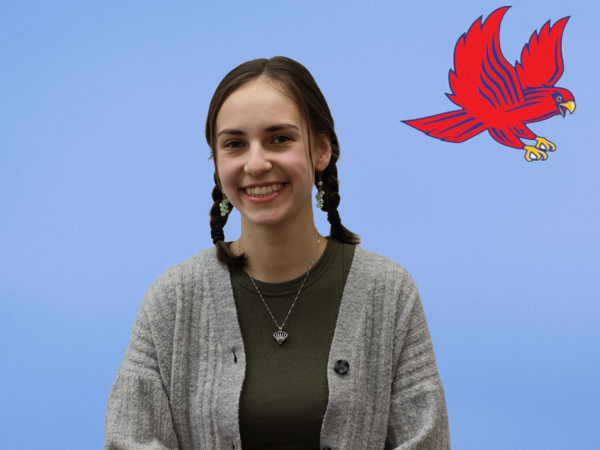As La Salle’s Director of Service, Sarah Maher Works To Create a School Community Passionate About Service and Social Justice
“Women’s history month is an opportunity for people of all genders to see the reality of those who identify as female,” said Ms. Sarah Maher, who is the Director of Service at La Salle.
March 16, 2022
Ms. Sarah Maher is the Director of Service, which includes a variety of responsibilities, including coordinating service projects, food drives for Lot Whitcomb, immersion trips, and other projects at La Salle, but in addition to that, she is also the club moderator for the Students Against Sexual Assault Club (SASA).
In 2019, which was Ms. Maher’s first year at La Salle, she was both the Dean of Women and the Director of Service. As the Dean of Women, she would assist vice principal Mr. Brian Devine in anything to do with disciplinary actions or in particular any women’s issues, though the position no longer exists at La Salle.
As the Director of Service, Ms. Maher manages all of the immersion trips and also orchestrates La Salle’s fundraisers — such as the Lot Whitcomb food and Christmas drives, which La Salle has been spearheading since they first partnered with Lot Whitcomb around 25 years ago. She also enjoys involving herself with social justice education, and advocacy for affinity and service groups.
Since the beginning of the COVID-19 pandemic, the need for food and Christmas gifts at Lot Whitcomb has been on the rise. “When I started here we were only doing 35 [bags of food] a week, and then during the pandemic, it jumped up to 60, then 80,” Ms. Maher said. “Recently they asked us for 95 bags and [then] they asked to just make it 100.”

To Ms. Maher, the drives are important so people can give back and understand what families in our community are going through. She hopes people are making a connection with the families, realizing what privileges we have, and understanding that we have a responsibility to help the less fortunate.
“I’ve tried to put a name to every package,” Ms. Maher said. “I hope to make human connections; to bring humanity into the conversation. If we feel like we’re more in a relationship with someone we’re more prone to action, and not just the action of buying presents or supporting this family during Christmas, but also, [continuing] those questions and why people are in need.”
Another big project Ms. Maher helps to organize is the immersion trips, which La Salle has been a part of for many years, including El Dorado, L’arche, the Blackfeet Reservation, and other trips involving migrant workers around Oregon. “It changes everything,” Ms. Maher said. “To live in solidarity with someone who is not living the life that we live here in Milwaukie is a chance to have your spirituality completely changed.”
Many of the trips were canceled or moved to virtual meetings because of the pandemic, but Ms. Maher hopes that in the future La Salle can begin going on the trips again. Ms. Maher also hopes to help organize more trips in the future, such as more trips to the border between Mexico and the U.S., ones involving the houseless community, and possibly an international trip to El Salvador in the summer.

Along with these trips, Ms. Maher also wants to do more social justice advocacy at La Salle, especially during March, since it is Women’s History Month.
“It’s a celebration for women everywhere,” Ms. Maher said. “It’s an opportunity to use our voices and be proud of the women who have come before us.”
In addition, as the moderator of the SASA club, Ms. Maher has been working with SASA, CommuniCare, and student council on an exhibit of women’s sexual assault stories in room 138.
The idea was created by Ms. Maher and senior Mia Kritzer, who want to highlight the Me Too movement. Their first idea was to get statements and stories from women, and it “spiraled into this beautiful project that we have,” Ms. Maher said.
Through the project, Ms. Maher said she wants to take away the normalization of rape culture. “I watched people walk through [the exhibit] and see that reality of life, [that] again people who identify as female go through on a very daily basis to people to protect themselves from sexual harassment or sexual assault,” she said.
So far, Ms. Maher has seen students and teachers add stories to the exhibit as it offers people a platform to talk. She hopes it continues to spark conversations in and out of the classroom.






Santiago N • Mar 17, 2022 at 7:55 am
Ms. Maher really has done so much for this community. Really respect her and the work she’s done.